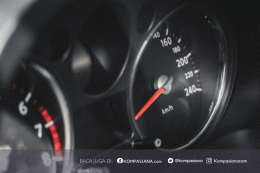Electric Cars in Indonesia: Between Economic Advantages and Environmental Challenges
The government's push towards a transition to electric cars has sparked various opinions among the public. At the Indonesia International Motor Show (IIMS) 2023, several visitors like Kevin (30) and Bachtiar (25) highlighted the significant benefits of using electric cars. Kevin emphasized the relatively low cost of use, while Bachtiar raised concerns about the depleting reserves of fossil fuels. Their views highlight both the economic and environmental advantages of electric cars.
From Kevin and Bachtiar's perspectives, electric cars offer an attractive economic solution. Kevin points out the lower cost of use, especially with the affordable electricity prices at public electric vehicle charging stations (SPKLU). Using electric cars makes traveling the same distance much more cost-effective compared to gasoline-powered cars. This underscores that, from an economic standpoint, electric cars provide significant benefits to users.
Moreover, Bachtiar also emphasizes the environmental aspect of using electric cars. With the depleting reserves of fossil fuels, electric cars become an environmentally friendly and sustainable alternative. Reducing dependence on fossil fuels also has the potential to lower greenhouse gas emissions and air pollution, providing positive impacts on the environment and human health.
However, a contrasting view is presented by Tama (30), who highlights the negative impact on air quality due to coal-fired power plants. Although electric cars do not produce direct emissions, the energy sources used to generate electricity can still cause pollution. Tama's argument underscores that the transition to electric cars is not entirely free from negative environmental impacts.
A major challenge still faced is the limited infrastructure of SPKLU in Indonesia. Despite the relatively low electricity prices, the number of SPKLU is not yet comparable to gasoline stations, posing a constraint. Further investment is needed in building infrastructure that supports a broader transition to electric cars in Indonesia.
Thus, although there are pros and cons in the government's push towards a transition to electric cars, their economic and environmental advantages remain important points to consider. However, to achieve a more effective transition, joint efforts are needed between the government, private sector, and the public in expanding infrastructure and supporting the broader use of electric cars in Indonesia.
Baca konten-konten menarik Kompasiana langsung dari smartphone kamu. Follow channel WhatsApp Kompasiana sekarang di sini: https://whatsapp.com/channel/0029VaYjYaL4Spk7WflFYJ2H







